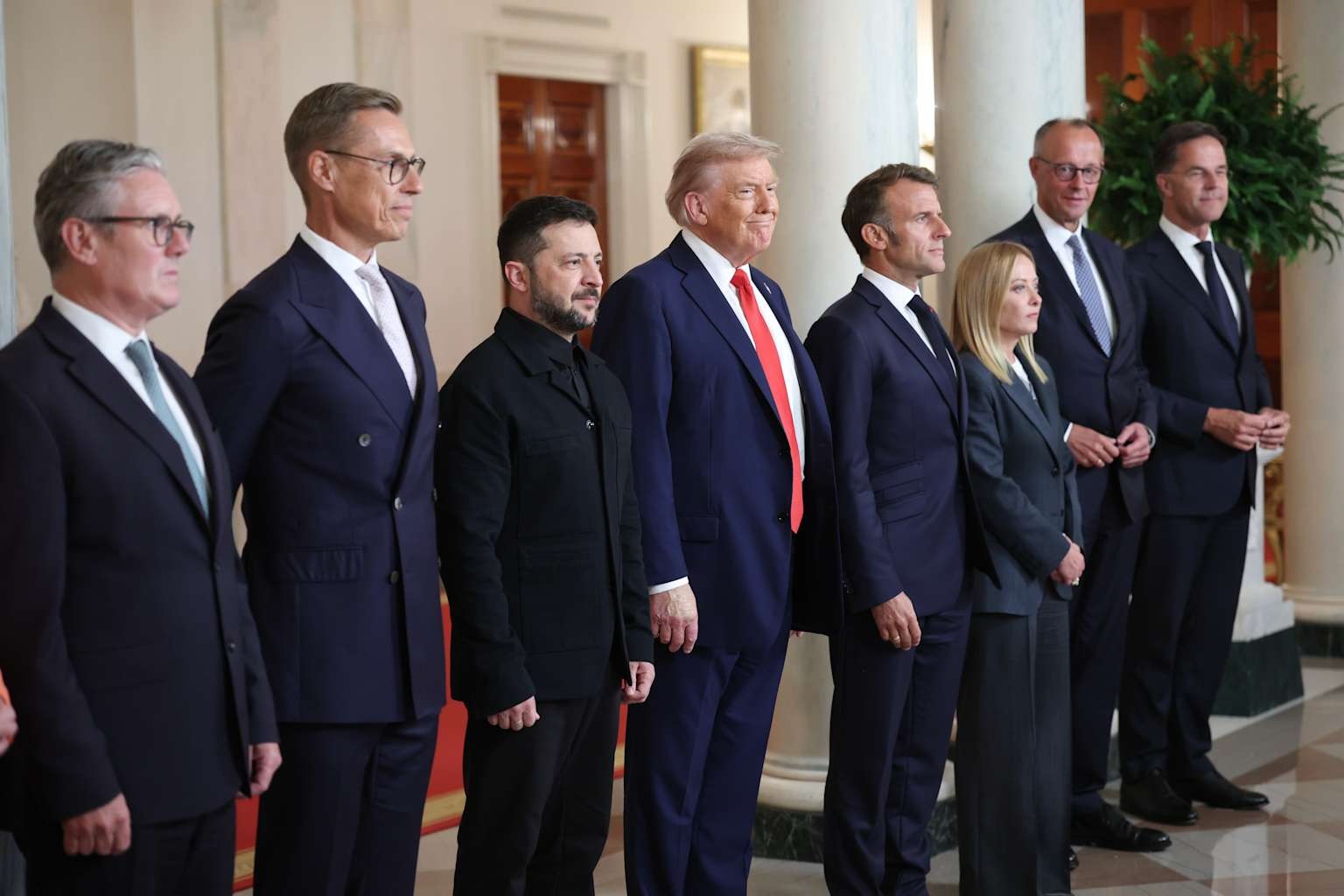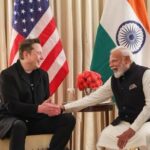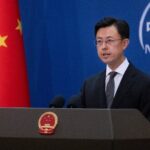Washington D.C., September 2025 – Former U.S. President Donald Trump reignited geopolitical tensions this past Sunday by demanding that European allies and NATO partners cease all purchases of Russian oil and align their sanctions more strictly with Washington’s increasingly tough measures against Moscow. As the war in Ukraine enters its third year, Trump’s statements reflect growing frustration in some political circles over what is seen as Europe’s continued economic entanglement with Russia, despite the intensifying humanitarian and security crisis.
Speaking to reporters upon returning from New Jersey, Trump strongly criticized Europe’s ongoing energy trade relationship with Russia, stating bluntly:
“Europe is buying oil from Russia. I don’t want them to buy oil.”
Further underscoring his hardline stance, Trump declared that he is prepared to impose additional sanctions on Russia, but only under certain conditions.
“I’m willing to do sanctions, but they’re going to have to toughen up their sanctions commensurate with what I’m doing,” he added.
His remarks highlight a deepening divide over the best strategy to isolate Russia economically while simultaneously ensuring the energy security of Western nations—particularly Europe—amid volatile global energy markets.
The Context: Sanctions, War, and Energy Dependencies
The Ukraine Conflict and Sanctions Regime:
Since the full-scale Russian invasion of Ukraine in early 2022, Western powers led by the United States, the European Union, the United Kingdom, and other allies have imposed sweeping sanctions aimed at crippling Moscow’s ability to finance its military operations. These sanctions have targeted key sectors of the Russian economy, including:
- Financial institutions
- Technology exports
- Defense industries
- High-ranking government officials and oligarchs
Despite this aggressive approach, the global energy market remains a significant blind spot. Russia, one of the world’s largest oil and gas producers, has continued to supply vast quantities of crude oil, refined petroleum products, and natural gas—particularly to Europe—using alternative channels and leveraging price discounts.
Europe’s Energy Dilemma:
Europe’s dependence on Russian oil and gas has long been a thorny issue. Despite the push for renewable energy and diversification of energy sources, Russia has remained a major supplier, especially in times of geopolitical instability. Energy giants like Rosneft and Gazprom have sustained exports to Europe through existing pipelines and maritime routes, often under conditions that circumvent certain sanctions.
European governments, while vocal in their condemnation of Russia’s actions, have faced significant challenges in cutting off Russian energy entirely, given the continent’s heavy reliance on affordable oil and gas for both industrial use and household consumption.
Trump’s Position: Hardline Pressure for Unified Sanctions
Trump’s call to halt all Russian oil purchases reflects a continuation of his administration’s hardline approach to Russia, despite leaving office in early 2025. His rhetoric signals frustration with what he perceives as Europe’s insufficient cooperation in aligning with U.S. sanctions.
The Demand for Collective Action:
Trump’s demand comes at a time when NATO’s role in geopolitical stability is under renewed scrutiny. The former president asserted that the alliance must not only defend military security but also enforce economic measures that maximize pressure on Russia.
In his own words:
“I’m demanding NATO stop buying oil from Russia. There’s no reason Europe should be buying oil from a regime that is murdering innocent Ukrainians and destabilizing the world.”
Trump’s statements have added political fuel to the ongoing debate in Washington about whether European allies should face coercion or incentives to sever energy ties with Moscow.
Conditional Sanctions:
Rather than pledging to unilaterally impose more sanctions immediately, Trump emphasized that additional sanctions would be contingent on European alignment.
“I’ll do more sanctions, but only if Europe toughens up. We can’t go it alone,” Trump said, framing the issue as one of allied solidarity and burden-sharing.
European Reaction: Mixed Signals and Policy Constraints
European leaders have responded to Trump’s remarks with a mix of caution and political nuance, reflecting their complex position in the global energy and diplomatic landscape.
Germany and Italy: Energy Reliant Yet Politically Opposed
Germany, which remains Europe’s largest economy and one of the largest importers of Russian energy, has reiterated its commitment to gradually phasing out reliance on Russian oil and gas. However, complete immediate severance is deemed impractical given infrastructure limitations and the risk of economic fallout.
Chancellor Anneliese Becker stated:
“We remain committed to transitioning away from Russian energy, but this must be a gradual and responsible process to avoid severe economic disruptions, especially during a fragile energy transition.”
Italy echoed similar sentiments, citing energy security concerns and the need for a balanced approach.
Poland and Baltic States: Strongest Advocates for Tough Measures
Poland, Lithuania, Latvia, and Estonia, which have historically been most critical of Moscow, welcomed Trump’s hardline stance, seeing it as a reinforcement of collective Western resolve. These nations continue to advocate for stricter sanctions and a full energy embargo on Russia as a moral and strategic imperative.
Polish Foreign Minister Anna Kowalska emphasized:
“Russia’s aggression in Ukraine must be met with unified, unwavering sanctions, including the complete cessation of energy purchases. This is the only way to ensure lasting peace.”
EU Commission: Calls for Pragmatism
European Commission President Marc van den Berg responded more cautiously, urging pragmatic and multilateral solutions.
“We are aligned in our goal to end Russian aggression, but energy security must be preserved during this transition. A precipitous halt in oil purchases would have destabilizing effects on the European economy,” van den Berg said.
Global Energy Market Implications
Oil Price Volatility
Trump’s call to halt Russian oil purchases comes at a time when global oil markets are already grappling with volatility. Brent crude hovered near $85 per barrel, while WTI remained around $79 per barrel during the early week of September.
Analysts warned that a sudden stop in Russian oil imports would likely send crude prices soaring, exacerbating global inflationary pressures and destabilizing energy markets.
Energy strategist Elena Petrova from Global Energy Watch commented:
“An abrupt halt in Russian oil would create massive supply shocks. Alternative sources would struggle to fill the gap in the short term, which could trigger a sharp price spike and supply shortages.”
Supply Chain Disruptions
Global supply chains remain fragile following the pandemic disruptions and earlier geopolitical tensions. Energy companies have been forced to rely on complex trading mechanisms, such as re-routing shipments through third countries or bartering arrangements, to circumvent sanctions.
The International Energy Agency (IEA) warned that further sanctions and embargoes could exacerbate systemic supply chain inefficiencies, leading to higher costs for producers and consumers alike.
Domestic U.S. Political Landscape: Bipartisan Divisions
Trump’s call has reverberated through the U.S. political system, highlighting deep divisions between those favoring a more aggressive stance toward Russia and others advocating for a balanced, strategic approach.
Republican Hardliners:
Many Republican lawmakers echoed Trump’s demands, arguing that Europe must be pressured into full alignment with U.S. sanctions to maximize economic pressure on Moscow and end the war in Ukraine.
Senator Mark Collins (R-TX) remarked:
“The time for half-measures is over. Europe must stand shoulder to shoulder with the United States in exerting full economic pressure on Russia. Buying oil from Moscow is unconscionable.”
Democratic Moderates:
Conversely, Democratic leaders advocated for a more cautious strategy, emphasizing the need to avoid economic destabilization, maintain global energy stability, and engage in continued diplomatic dialogue.
Senator Elizabeth Meyers (D-NY) cautioned:
“We must proceed carefully. A complete ban on Russian oil without proper alternatives in place would hurt American consumers and our global allies more than the Russian regime.”
The Way Forward: Possible Scenarios
Scenario 1: A Coordinated NATO Energy Embargo
In this scenario, NATO members agree—under diplomatic pressure—to halt all purchases of Russian oil over the next 6–12 months, contingent on implementing infrastructure to diversify supply, increase strategic reserves, and accelerate the green energy transition.
Scenario 2: Partial Compliance with Continued Trade
A more likely outcome could involve a patchwork of compliance, where some European nations fully comply with Trump’s demands (e.g., Poland and the Baltic states), while major economies like Germany and Italy continue limited trade until alternative sources are fully developed.
Scenario 3: Continued Status Quo
Alternatively, global inertia and structural energy dependencies may result in no significant change, with Europe continuing to purchase Russian oil under discount arrangements, while both sides maintain separate sanctions regimes.
Conclusion: A Defining Moment in Geopolitical Energy Policy
Trump’s demand that NATO partners and European allies halt Russian oil purchases marks a pivotal development in the geopolitics of energy. It underscores the growing interplay between national security imperatives and economic realities in a world increasingly defined by energy dependencies, global power shifts, and fragile economic recovery.
Whether his hardline stance leads to coordinated action, partial compliance, or continued status quo remains uncertain. However, the geopolitical, economic, and humanitarian stakes are undeniable.
What is clear is that the unfolding situation will continue to reshape global energy markets, diplomatic alliances, and international trade patterns for years to come.
Disclaimer: This article is for informational purposes only and does not constitute financial, political, or investment advice.





